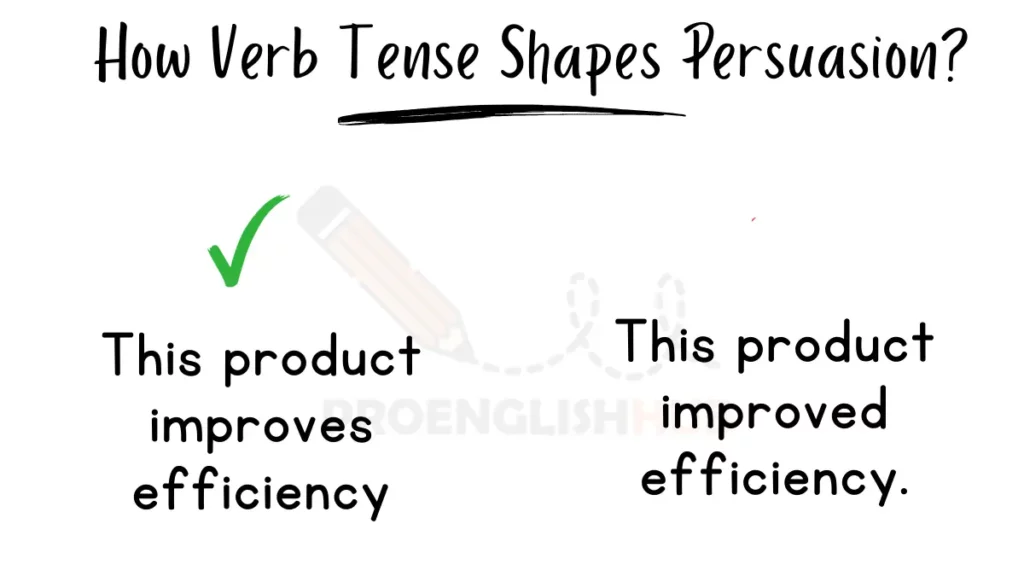Verb tense shapes persuasion primarily through the use of present tense, which increases perceived certainty, relevance, and vividness of information.
Verb tense plays an important role in shaping the persuasiveness of communication. Research indicates that the choice of tense can significantly impact how the audience perceives and processes information.

Table of Contents
ToggleHow Present and Past Verb Tense Shapes Persuasion?
By choosing the right tense, writers and speakers can convey their message more effectively. This way they can influence their audience’s emotions and beliefs. For example, using the past tense can create a sense of nostalgia. It makes an argument more relatable and appealing.
In contrast, the present tense can make an argument more urgent and pressing. Similarly, using the future tense can inspire hope and optimism. By carefully selecting verb tenses, communicators can craft a persuasive message that resonates with their audience.
Present Tense
The present tense is particularly effective in persuasive communication:
- Increased Certainty – Statements in present tense convey a higher degree of certainty, and enhance the speaker’s perceived confidence.
- Relevance – Present tense makes information appear more current and applicable, and increase its perceived value.
- Vividness – Descriptions in present tense create more vivid mental imagery, and potentially lead to stronger emotional engagement.
Example – “This product improves efficiency” is generally more persuasive than “This product improved efficiency.“
Past Tense
While less persuasive overall, past tense remains valuable in specific contexts:
- Historical Evidence – For citing specific past events or established track records.
- Comparative Statements – To highlight improvements or changes over time.
Practical Applications
Here are a few practical applications of how verb tense shapes persuasion:
- Product Descriptions – Use present tense to emphasize ongoing benefits and features.
- Opinion Pieces – Present tense can make arguments seem more universally applicable.
- Experience Sharing – Describe experiences in present tense to increase immediacy and relatability.
`


